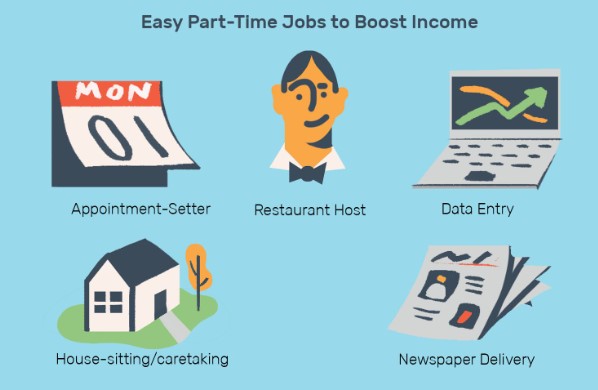Foreigners Possible jobs in the US?
Foreigners in the U.S. contribute to a diverse range of industries, playing key roles in various sectors based on their skills, education, visa status, and the needs of the U.S. labor market. Here’s an expanded overview of common sectors and jobs where foreigners frequently find employment: 1. Technology and IT 2. Healthcare 3. Academia and…
Foreigners in the U.S. contribute to a diverse range of industries, playing key roles in various sectors based on their skills, education, visa status, and the needs of the U.S. labor market. Here’s an expanded overview of common sectors and jobs where foreigners frequently find employment:
1. Technology and IT
- Software Developers and Engineers: The U.S. tech industry, especially hubs like Silicon Valley, heavily relies on highly skilled foreign talent. Many professionals are hired through H-1B visas to fill these in-demand roles, as they bring expertise in programming, artificial intelligence, and cybersecurity.
- Data Scientists and Analysts: With the increasing importance of big data, foreign professionals with strong analytical skills are employed across industries such as technology, finance, and healthcare. These roles are pivotal in data-driven decision-making and innovation.
- Network and Systems Administrators: Foreign IT professionals manage and maintain essential IT infrastructure, ensuring that businesses operate smoothly. They play a crucial role in cybersecurity, network management, and cloud services.
2. Healthcare
- Physicians and Surgeons: The U.S. healthcare sector benefits from foreign-trained doctors, many of whom complete their residency or fellowship programs in the U.S. before practicing. Foreign physicians often fill gaps in underserved areas and specialties.
- Registered Nurses: Due to nursing shortages, foreign nurses are regularly recruited to work in hospitals, nursing homes, and healthcare facilities. The demand is particularly high in states with aging populations.
- Medical Technologists and Technicians: Foreign workers in diagnostic labs and other medical settings support the healthcare system through critical testing and analysis, contributing to patient care and treatment decisions.
3. Academia and Research
- University Professors: U.S. universities frequently hire foreign academics in STEM fields, humanities, and social sciences. These individuals often have specialized expertise and contribute significantly to research and innovation.
- Postdoctoral Researchers: Many foreign postdocs are involved in scientific, medical, and engineering research, playing key roles in advancing knowledge and technology in the U.S.
4. Engineering
- Mechanical Engineers: Employed in sectors such as automotive, aerospace, and manufacturing, foreign mechanical engineers design, develop, and improve machinery and products.
- Civil Engineers: Foreign civil engineers work on infrastructure projects such as bridges, roads, and water systems, contributing to the development and maintenance of critical public works.
- Electrical Engineers: They are employed in industries like energy, telecommunications, and electronics, where they help design and maintain electrical systems and equipment.
5. Finance and Business
- Financial Analysts: Foreign professionals play key roles in investment banks, hedge funds, insurance companies, and corporate finance departments, offering their expertise in analyzing financial data and trends.
- Accountants and Auditors: Many foreign professionals work in accounting firms or multinational corporations, handling audits, financial reporting, and compliance.
- Management Consultants: Foreign consultants provide strategic advice to businesses, helping them navigate complex challenges, optimize operations, and improve profitability.
6. Hospitality and Service Industry
- Hotel Management: In tourist-heavy regions like New York City, Las Vegas, and Miami, foreigners often work in hotel management, leveraging their international experience to cater to diverse clientele.
- Restaurant Staff: Foreign chefs, cooks, and servers are common, particularly in ethnic restaurants, where they bring unique culinary expertise and cultural flair.
- Housekeeping and Maintenance: Many foreigners work in housekeeping and maintenance roles in hotels, resorts, and residential complexes, providing essential services to the hospitality industry.
7. Construction and Skilled Trades
- Construction Laborers: The construction industry employs many foreign laborers to work on projects ranging from residential buildings to large infrastructure developments.
- Electricians and Plumbers: Skilled foreign tradespeople are in high demand for roles in construction and maintenance, where their expertise ensures the safe and efficient functioning of buildings and facilities.
8. Agriculture
- Farm Workers: The U.S. agricultural sector relies heavily on seasonal foreign labor, especially through the H-2A visa program. Workers in this field handle tasks such as planting, harvesting, and processing crops.
- Greenhouse Workers: In horticulture and nursery settings, foreign workers manage plant production, ensuring the U.S. has a steady supply of flowers, fruits, and vegetables.
9. Logistics and Transportation
- Truck Drivers: Foreign truck drivers are vital to the U.S. supply chain, especially for long-haul trucking companies. They often work through specific visa programs to meet the demand for goods transportation.
- Warehouse Workers: In logistics and distribution centers, many foreign workers help ensure products are sorted, packed, and shipped efficiently to meet consumer demands.
10. Retail and Sales
- Retail Sales Associates: Foreign workers often fill roles in retail stores and supermarkets, providing customer service and managing inventory.
- Sales Representatives: Foreign professionals, particularly those fluent in multiple languages, are often hired to help businesses target international markets and expand their global reach.
11. Creative Arts and Media
- Artists and Musicians: Foreign artists, actors, and musicians with extraordinary abilities are often employed in the U.S. cultural industries through O-1 visas, contributing to the country’s vibrant arts scene.
- Journalists: Foreign journalists are employed by international news agencies and media outlets, providing unique perspectives on global affairs.
Visa Types and Work Authorization
- H-1B Visa: For highly skilled workers in fields like technology, engineering, and healthcare.
- L-1 Visa: For intracompany transferees in managerial or executive roles, allowing multinational companies to bring foreign executives to the U.S.
- O-1 Visa: For individuals with extraordinary abilities in arts, sciences, education, business, or athletics.
- TN Visa: For Canadian and Mexican professionals, allowing them to work in the U.S. under the USMCA (formerly NAFTA).
- E-2 Visa: For investors and employees of companies making significant investments in the U.S.
- F-1 Visa (OPT): Allows foreign students to gain practical work experience in the U.S. after completing their degrees through the Optional Practical Training program.
- H-2A and H-2B Visas: For temporary agricultural and non-agricultural work, commonly used by employers in sectors like farming, construction, and hospitality.
Conclusion
Foreigners play a crucial role in the U.S. economy, filling key positions across a wide array of industries. From technology and healthcare to agriculture and logistics, their contributions are vital to sustaining the nation’s economic growth. Their specific roles are often shaped by their visa status, skillsets, and the demands of the labor market, with many of them filling roles that are critical for the country’s development and global competitiveness






